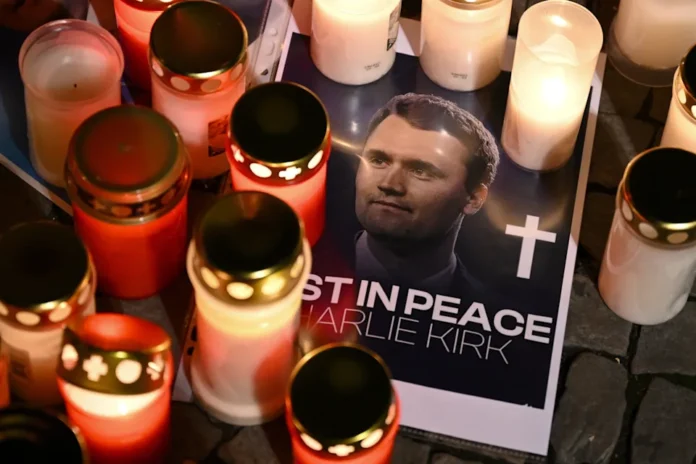The political climate in New Jersey grew even more tense this week after a Rockaway Township teacher resigned following fierce backlash over social media comments about Charlie Kirk, the conservative activist who was recently killed. The resignation came after a Facebook post went viral, sparking outrage, safety concerns, and community pressure that ultimately led to the teacher stepping down from their position.
The incident highlights how deeply divided the state—and the nation—remains when it comes to political discourse. Supporters of Kirk have held vigils and tributes across New Jersey, while critics have raised their voices about his political legacy. But for educators and public officials, the consequences of engaging in these debates online have proven increasingly severe.
According to district officials, the decision to resign followed intense pressure and concerns that the controversy could disrupt the classroom environment. While the teacher’s exact comments were not publicly disclosed by the district, the backlash on social media was immediate and unrelenting. The doxxing of the educator, where personal information was shared online, escalated the situation further and raised safety concerns for both the individual and the school community.
The fallout has not been limited to schools. In Sussex County, Skylands Stadium announced it would not move forward with plans for a Charlie Kirk memorial, citing warnings about potential safety risks. Organizers had hoped to hold a tribute at the popular venue, but officials said the decision was made out of caution. Similar events across the state have faced scrutiny, with some going forward and others being called off depending on local assessments of security concerns.
On Capitol Hill, New Jersey lawmakers have been split on how to respond. Representative Mikie Sherrill voted in support of a House resolution condemning political violence in the wake of Kirk’s assassination, though she also emphasized concerns about his political agenda during her remarks. Other members of the state’s delegation opposed the resolution, reflecting the partisan divides that continue to shape the conversation.
The broader impact of Kirk’s death and the reactions to it are being felt across New Jersey, where free speech debates have collided with workplace consequences. Several educators and professors in the state have faced disciplinary actions or termination following comments about the activist, underscoring how sensitive and combustible these issues have become. University leaders and school districts alike have pointed to campus safety and community trust as driving forces behind their decisions.
For many in New Jersey, the controversy represents a larger trend: the blurring of lines between political commentary, personal expression, and professional accountability. The rise of online outrage has made it nearly impossible for public-facing figures, especially educators, to separate their private opinions from their public responsibilities. As politics becomes increasingly polarized, New Jersey finds itself at the center of a national conversation about speech, responsibility, and the lasting impact of online discourse.
As the situation continues to unfold, residents and policymakers across the state are watching closely. The balance between protecting free expression and ensuring safety in schools and public spaces remains a pressing concern. What is clear is that political flashpoints, such as the killing of Charlie Kirk, have immediate ripple effects here in the Garden State, shaping debates about education, safety, and the role of public officials in an era of heightened political division.
For more reporting on state politics and the evolving issues shaping communities across New Jersey, visit Explore New Jersey Politics.












